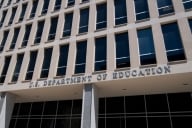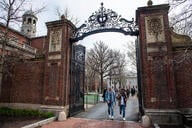You have /5 articles left.
Sign up for a free account or log in.
“Obstacles to Excellence: Academic Freedom and China’s Quest for World-Class Universities,” a new report from the Scholars at Risk Academic Freedom Monitoring Project, focuses on restrictions on academic freedom both within mainland China and with regards to Chinese university collaborations with foreign institutions.
The report outlines a range of tactics imposed by Chinese government and university authorities to “intimidate, silence and punish academics and students” within mainland China, including: “limits on internet access, libraries and publication imports that impair research and learning; orders to ban discussion and research on topics the Party-state deems controversial; surveillance and monitoring of academic activity that result in loss of position and self-censorship; travel restrictions that disrupt the flow of ideas across borders; and the use of detentions, prosecutions and other coercive tactics to retaliate against and constrain critical inquiry and expression.”
The report discusses the particularly harsh conditions for academic freedom for students and scholars in Tibet, Inner Mongolia and the Xinjiang Uighur Autonomous regions. It notes that, since 2017, "a growing number of scholars and students from Xinjiang’s minority communities have been targets of an unprecedented government crackdown, which, many rights groups and experts believe, has resulted in more than one million individuals wrongfully detained in so-called re-education camps or disappeared."
The report also discusses the erosion of university autonomy in the semiautonomous regions of Hong Kong and Macau, both of which have enjoyed relatively significant amounts of academic freedom in the past.
Finally, the report discusses restrictions on Chinese students and scholars who work overseas, including “reports of scholars and students experiencing surveillance, intimidation and coercive legal action, and apparent efforts by PRC officials and their allies to constrain expression on foreign campuses.”
“For decades now, the Chinese government has invested heavily in academic institutions and programs designed to compete with the world’s finest,” said Robert Quinn, the executive director of Scholars at Risk, an organization that monitors academic freedom worldwide and helps displaced scholars by arranging for temporary positions at member universities. “This positive ambition is undermined, however, by state policies and practices that fail to protect academic freedom. This poses grave personal and professional risks for Chinese scholars and students and serious academic, reputational and financial risks for foreign academic institutions with partnerships with Chinese counterparts, in China or abroad.”




